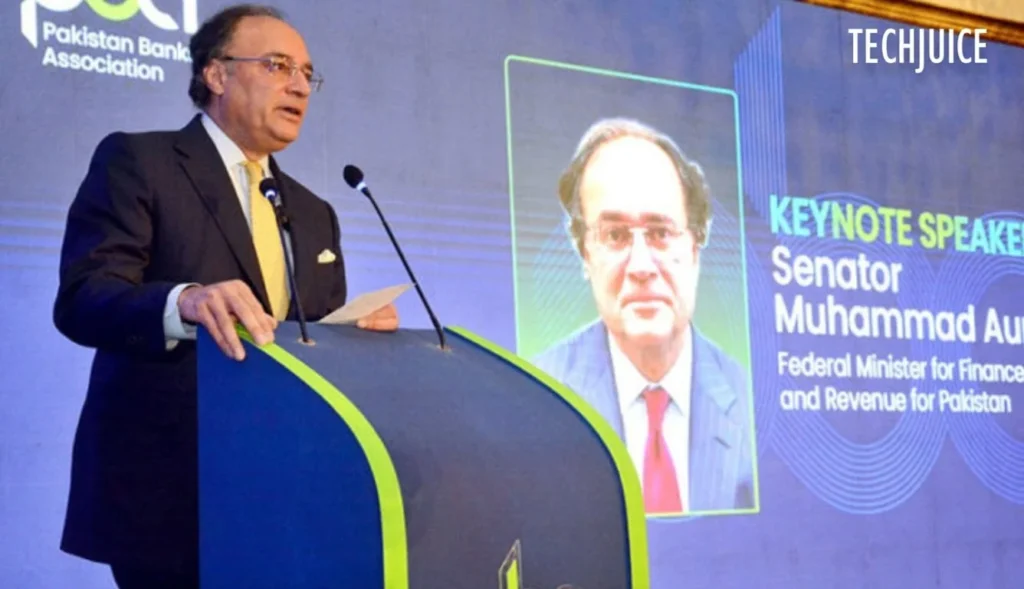- Web
- Feb 05, 2026
Aurangzeb advocates open-minded crypto regulation at Pakistan Banking Summit 2025
-

- Web Desk Karachi
- Feb 25, 2025

KARACHI: Senator Muhammad Aurangzeb, the Federal Minister for Finance and Revenue, on Monday, announced improvements in Pakistan’s macroeconomic stability, citing enhanced performance in both internal and external accounts.
While speaking at the inaugural Pakistan Banking Summit 2025, organised by the Pakistan Banks Association (PBA) at a local hotel, Aurangzeb revealed that a mission from the International Monetary Fund (IMF) is scheduled to arrive in Pakistan during the first week of March for a review of the country’s economic performance over the first six months of the fiscal year. He also indicated that a technical team is already in the country to explore flexible climate financing options.
During the summit he also highlighted on how the government is catching up on digital asset initiatives and was currently focusing on the formulation of related regulations. He encouraged authorities to approach the potential introduction of cryptocurrency with an “open mind,” especially given the significant advancements in digital banking in Pakistan.
The finance minister highlighted several key economic developments and future strategies, stating that the country’s macroeconomic situation has improved, marked by a current account surplus recorded in the first seven months of fiscal year 2025, alongside declining inflation and interest rates.
Aurangzeb initiates inclusive budget talks with traders
Regarding privatisation efforts, Aurangzeb confirmed that Pakistan International Airlines (PIA) is on track to be privatised within the current year. He reiterated the government’s commitment to reform, particularly in enhancing the Federal Board of Revenue (FBR) through various digitalization initiatives. He pointed out that the implementation of faceless assessments has led to a remarkable 90 percent decrease in corruption.
Aurangzeb outlined ongoing efforts involving six partnership themes with international financial institutions over the next decade, focusing four themes on climate change and two on financial matters. He also noted that the privatization process for three power distribution companies (DISCOs) is set to commence soon as part of the government’s broader economic reform agenda.
Furthermore, the Federal Finance Minister highlighted the banking sector’s success in implementing farmer card programmes and solar schemes, illustrating the financial sector’s positive contribution to sustainable development initiatives. At the PBA Summit, he provided a detailed vision for transforming Pakistan’s economy, showcasing recent successes and laying out extensive plans for structural reforms across various sectors.
He elaborated on plans for optimizing government spending through right-sizing and implementing agricultural reforms, including the agricultural income tax. Aurangzeb announced intentions to conduct regular reviews with provincial finance ministers concerning the execution of agricultural reforms and indicated the establishment of a policy-level advisory board, encouraging participation from the banking sector.
Regarding the development of the SME sector, Aurangzeb declared the launch of an SME index within the year to encourage larger banks to enhance financing for SMEs, emphasizing the government’s goal of fostering an export-led economy where all sectors contribute to exports. He stressed the significance of collaborating with the Small and Medium Enterprises Development Authority (SMEDA) to build banking capacity.




